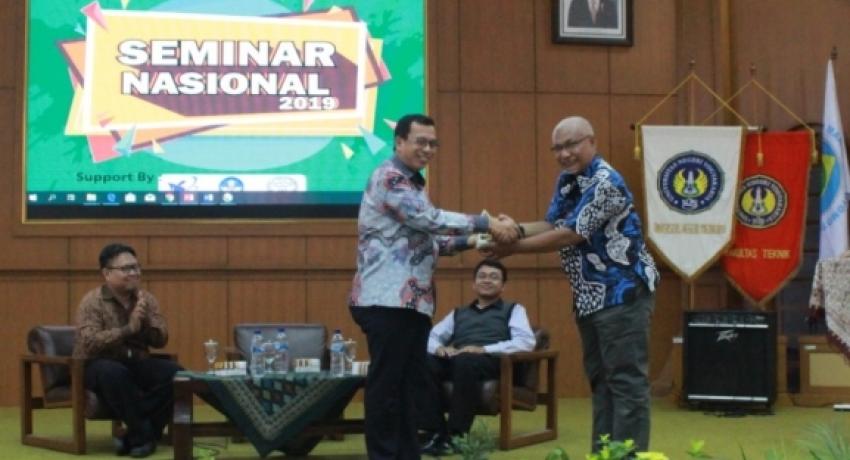For those who work on vocational education, Prosser Theory which contains 16 Vocational Education Principles is quite familiar. The contents of the 16 principles of vocational education delivered by the "Father of Vocational Education" include the importance of the interrelation of the learning process in educational institutions and the type of work in the industry/workplace. Learning environment, training that forms competencies and tasks in the learning process must be in accordance with the industry as a provider of employment. In fact, along with the rapid development of technology which has now penetrated the Industrial Revolution 4.0, regular update on link and match is a must. Thus, vocational education institutions must always be "close" to the industry, of course, industries that are relevant to the area of expertise offered at these institutions.
Answering these needs, the Department of Automotive Engineering Education FT UNY, in collaboration with PT. Toyota Motor Manufacturing Indonesia (TMMIN) for sharing knowledge in the Seminar and Focus Group Discussion (FGD) Curriculum Development. In this activity, the Director of PT. TMMIN, Ir. ToermoediSujiargiono and CSR Manager of PT. TMMIN, SyaefudinJuhri, is here to share experiences and knowledge related to the latest technology in the Automotive world. In addition, PitoyoNugroho, ST, a representative from the Directorate of Vocational Development, was also present to explain the latest policy regarding vocational education in Indonesia (28-29 / 09/2019).
Ir. Toermoedi Sujiargiono concluded that HR became one of the key indicators in increasing the nation's competitiveness. "Therefore, Toyota continues to improve human resources along with the Industrial Revolution 4.0, among others in the form of increasing Internet of Things (IoT) Expertise, Training Using Virtual Reality (VR) and Artificial Intelligent (AI)," said the Director of TMMIN.
After the seminar, CSR Director and Manager of PT. TMMIN also attended the FGD with the theme of Curriculum Development. Not only from TMMIN, the curriculum development was also attended by OTO INA Professional Certification Institute (LSP), DitPSMK, lecturers, students and alumni of the Department of Automotive Engineering Education.
In the FGD, the Director of PT. TMMIN provides advice and input related to the Applied Bachelor (D4) Automotive Engineering curriculum. This input is very useful for the D4 curriculum in automotive engineering, considering that one of the graduates' profiles is being able to enter the automotive manufacturing industry.
The next effort after the seminar and curriculum development with PT TMMIN is a collaborative planning for the development of automotive D4 lecturers in improving the quality of learning so that it impacts on the quality of graduates. (hryo; Tj.Lak)





